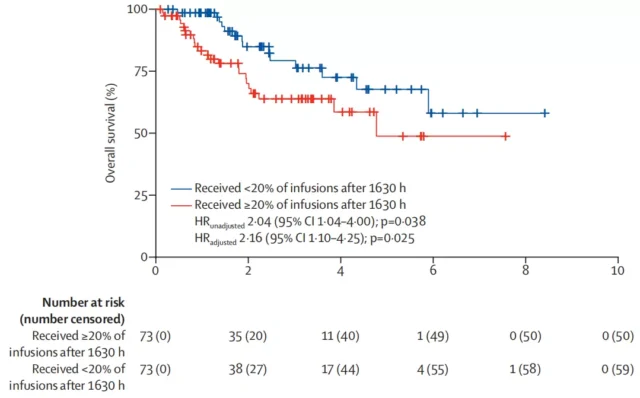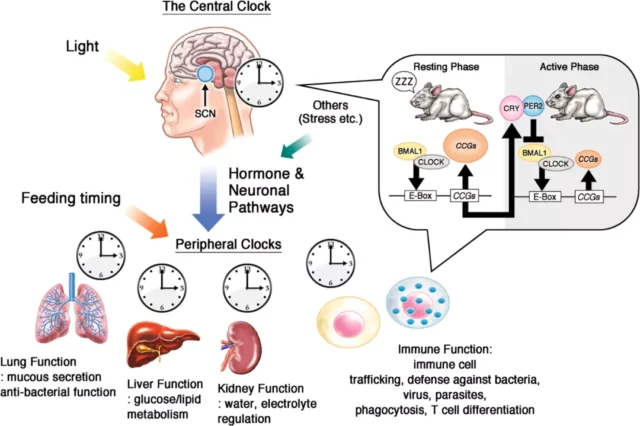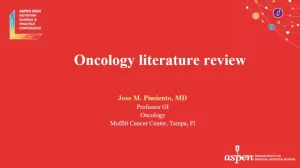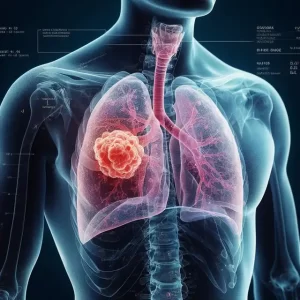Different time of immunotherapy medication may cause the death risk double
- EPA Announces First-Ever Regulation for “Forever Chemicals” in Drinking Water
- Kochi University pioneers outpatient bladder cancer treatment using semiconductor lasers
- ASPEN 2024: Nutritional Therapy Strategies for Cancer and Critically Ill Patients
- Which lung cancer patients can benefit from neoadjuvant immunotherapy?
- Heme Iron Absorption: Why Meat Matters for Women’s Iron Needs
- “Miracle Weight-loss Drug” Semaglutide Is Not Always Effective
Lancet Oncology: The different time of immunotherapy medication may cause the death risk double
- Red Yeast Rice Scare Grips Japan: Over 114 Hospitalized and 5 Deaths
- Long COVID Brain Fog: Blood-Brain Barrier Damage and Persistent Inflammation
- FDA has mandated a top-level black box warning for all marketed CAR-T therapies
- Can people with high blood pressure eat peanuts?
- What is the difference between dopamine and dobutamine?
- How long can the patient live after heart stent surgery?
Lancet Oncology: The different time of immunotherapy medication may cause the death risk double
Immunotherapy is too esoteric and complicated. The more you study, the more interesting it becomes.
From time to time, after reading some research, Singularity Cake expresses the emotion of the head of Chu, “You, you, you can always give me new tricks.”
Experts express this feeling because there are too many factors that affect immunotherapy, not to mention the characteristics of cancer cells and immune cells in different tumors.
Medications alone include antibiotics, glucocorticoids, metformin, and mystery. Intestinal flora, and obesity that leads to the “medical paradox” in immunotherapy…
A new study recently published in “The Lancet Oncology” also found for the first time that the body’s biological clock and circadian rhythm have a clear correlation with the efficacy of immune checkpoint inhibitors. After reading the singularity cake, you can only say hello. Guys.
This retrospective analysis conducted by the Emory University team found that for patients with advanced melanoma who received PD-1 inhibitors or CTLA-4 inhibitor monotherapy/combination therapy, the time of administration affects the overall survival of the patients ( OS) is a key factor, the effect of medication in the morning will be significantly better than in the evening .
If the patient has at least 20% of the drug dose during the treatment, which is infused after 16:30 in the afternoon, it is related to the doubling of the risk of death (HR=2.03), and the 5-year survival rate of the patient will also be reduced by 20%.
The magnitude of the impact is really scary [1]. So choosing the right time to administer medicine may also become a part of precision immunotherapy in the future.
The circadian body clock and immunotherapy are both very ambitious subjects.
The weight is heavy until 2017 and 2018. Scientists who study them have won the Nobel Prize in Physiology or Medicine.
Therefore, the existing scientific exploration can only be said to be the beginning of the connection between the two.
However, some small-scale clinical studies have shown that the immune response activated by vaccine injection at 9-11 am will be significantly better than 15-17 pm [2]; and at different times of the day, injection of recombinant human interleukin-2 For cytokine immunotherapy, the efficacy seems to be different [3].
It seems that the COVID-19 vaccine also has some related preliminary studies.
Therefore, the Emory University team carried out this research to see whether the popular “fried chicken”, an immune checkpoint inhibitor, would be related to the circadian rhythm when used.
It has been eight or nine years since immunotherapy was approved in the United States, and there is really a lot of data in this area.
Among the 299 immunotherapy melanoma cases collected by the researchers, about 1/4 of the patients had ≥20% of the dose of immune checkpoint inhibitors administered by intravenous infusion after 16:30 in the afternoon , and this time Each additional 20% of the dose in the segment is related to a 31% increase in the risk of death (HR=1.31) .
Next, the researchers used the propensity score matching (PSM) method to divide the 73 patients whose immune checkpoint inhibitors were administered ≥20% after 16:30 in the afternoon, similar to the 73 patients with baseline characteristics, but were administered at the same time Patients with a dose of less than 20% were matched, and the relationship between the survival status of the two groups and the time of administration was analyzed.
This is not better than not knowing, and one is more shocked: After 16:30, the 5-year survival rate after immunotherapy is 49% for patients whose administration time is ≥20%, and the median OS of patients reaches 4.8 years, which is said to be melanin Tumor treatment is not bad, but the 5-year survival rate of patients in the control group is 68% (median OS has not yet been reached).

The survival curves of the two groups are very clearly separated
The five-year survival rate gap of nearly 20% is calculated to have the conclusion that “the risk of death doubled with immunotherapy in the afternoon” , and the conclusion after multi-factor analysis is basically unchanged.
The 1-year progression-free survival rate of the two types of patients is 40% to 56%, and the complete remission rate is 22% to 34% . There is also a significant gap.
The research team pointed out in the discussion section of the paper that the influence of human circadian rhythm on the systemic immune status should be the main reason for the difference in immunotherapy effects.
For example, the analysis node selected for the study is 16:30 in the afternoon, while previous studies have shown 16:00. Before and after, it may happen to be the “trough period” of immune cell state [4].
Although the half-life of immune checkpoint inhibitors in the body is generally a few weeks, and theoretically it will experience many rounds of circadian rhythms, but there are also studies showing that PD-1 inhibitors are infused in tumor-draining lymph nodes (Tumor-draining Lymph Nodes) Wait for the concentration of secondary lymphoid organs, it will peak within 30 minutes [5].
If this key node that activates the immune system happens to catch up with the trough of immune cells, then immune checkpoint inhibitors may have missed a great opportunity.
As for the patient’s baseline characteristics, such as gender differences, distant metastasis and other factors, how will they affect the circadian rhythm and immune system, we need to continue to do research to clarify.

The circadian rhythm affects almost all organs and systems in the human body, so research will definitely be difficult
(Image source: JACI)
In the future, it would be great if there were prospective, large-scale clinical studies that specifically used different administration times as control variables to analyze the differences in the effects of immunotherapy.
Before that, clinicians may wish to give it a try and try to use immunotherapy during the day to see if the findings of this study will be reproduced?
references:
1. Qian DC, Kleber T, Brammer B, et al. Effect of immunotherapy time-of-day infusion on overall survival among patients with advanced melanoma in the USA (MEMOIR): a propensity score-matched analysis of a single-centre, longitudinal study[J]. The Lancet Oncology, 2021.
2. Long JE, Drayson MT, Taylor AE, et al. Morning vaccination enhances antibody response over afternoon vaccination: a cluster-randomised trial[J]. Vaccine, 2016, 34(24): 2679-2685.
3. Re GL, Santeufemia DA, Re FL, et al. Interleukin-2 chronotherapy for metastatic renal cell carcinoma: Results of a phase I-II study[J]. Cytokine, 2020, 128: 154984.
4. Downton P, Early JO, Gibbs J E. Circadian rhythms in adaptive immunity[J]. Immunology, 2020, 161(4): 268-277.
5. England CG, Ehlerding EB, Hernandez R, et al. Preclinical pharmacokinetics andbiodistribution studies of 89Zr-labeled pembrolizumab[J]. Journal of NuclearMedicine, 2017, 58(1): 162-168.
Lancet Oncology: The different time of immunotherapy medication may cause the death risk double
(source:internet, reference only)
Disclaimer of medicaltrend.org
Important Note: The information provided is for informational purposes only and should not be considered as medical advice.



